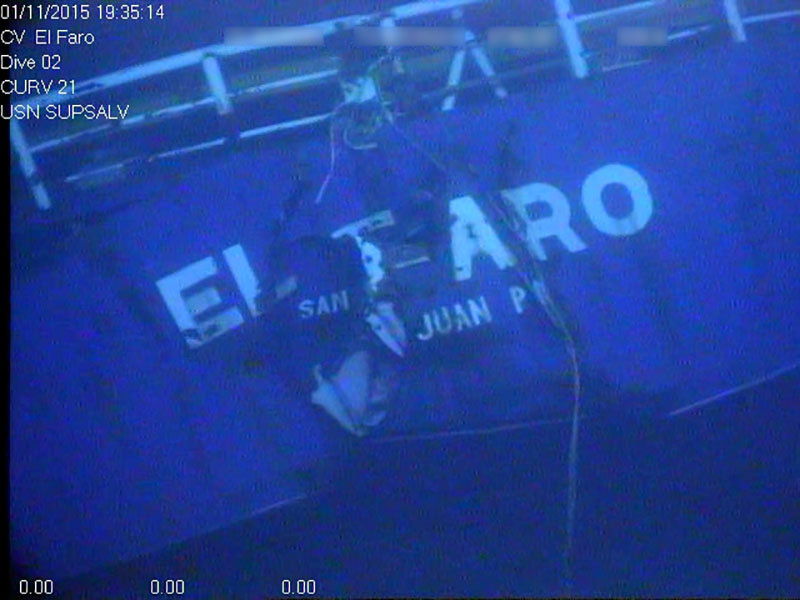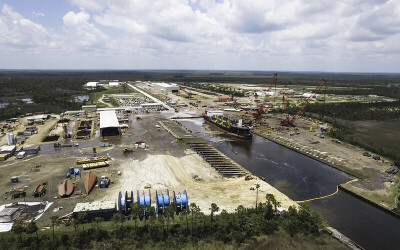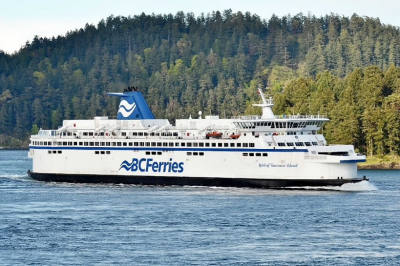When the National Transportation Safety Board (NTSB) gets involved investigating a marine transportation accident, the vessel owner and operator often feel powerless. But the head of the NTSB says the vessel company can play an important role in the investigative process.
NTSB Chairman Robert Sumwalt told a webinar organized by the American Waterways Operators on Wednesday that the NTSB operates under a “party system,” which relies on the support and participation of industry and labor representatives that possess expertise that could be helpful to an accident investigation.
Sumwalt urged companies to become involved as a party member because “no one knows your operation better than you.” Under the supervision of the NTSB, party members with relevant technical expertise gather factual information and make submissions that help the agency determine probable cause of an accident. He said such input is crucial to the investigative process.
He also recommends that party members meet individually with the NTSB board members, who welcome the chance to hear different viewpoints.
Headquartered in Washington, D.C., the NTSB is an independent government investigative agency that reports on aviation accidents and certain types of road, marine, railroad and pipeline accidents. Most recently, the agency investigated two major marine accidents involving the sinking of the El Faro cargo ship during a hurricane in 2015 with the loss of 33 onboard, and the Missouri duck boat accident in 2018 that claimed 17 lives.
The NTSB is not a regulatory agency, Sumwalt said, but rather it makes safety recommendations as part of a final investigation report. “People don’t have to follow them, but we’re saying that this is a factor in an accident and it needs to be corrected. It’s really up to either the Coast Guard or the operators or whoever the recommendations are directed toward to decide how to implement the recommendations.”
About 80% to 82% of NTSB recommendations are ultimately implemented, he said, adding that the majority of accidents across all transportation modes are caused by the failure to follow standard operating procedures.
Asked how the agency gets involved in an investigation, Sumwalt said the NTSB is required to investigate all civil aviation accidents and a decision is made about marine accidents based primarily on whether there is “a potential safety payback” from investigating. “If we believe there is, we initiate an investigation,” he said. “And we coordinate with the Coast Guard. Sometimes they lead, and sometimes we do.” He added that the relationship between the two agencies has been strained in the past, and sometimes they disagree, “but we have mutual respect for our respective organizations.”
A key to assuring safety in all modes of transportation is having a strong safety management system in place that is well understood within the company and is visibly supported by top management. “Understanding where your hazards are, looking at the risks, assigning risks and doing whatever is responsible to lower that risk as reasonable as possible,” he said, noting that the inland barge and towing industry is already guided by such systems.
He said that the airline industry has done a very good job of managing safety, largely because it collects data from routine flights that is analyzed to identify problems before an accident happens. “The last fatal crash with a major airline was in November 2001, and I think that speaks volumes considering that they are flying so many flights every day,” said Sumwalt, a former pilot.
“Accidents are not the best predictors of where the problems in the system are,” he said. “This is why it’s good to have a data collection system ... some sort of operational monitoring program is very important, incident reporting systems to find out where the problems are.” This could be done in the marine industry, he said.
Creating a strong safety culture within a company is essential. “Safety has to start at the top of an organization and permeate the entire organization,” the chairman said. “People understand if someone is deeply committed, and they’re going to watch you.”
He encourages developing a “just culture” that is based on fairness. “If someone reports an honest error, what will you do? A lot (of managers) would punish that person. But you should praise that person and thank them for telling. If you punish people for making mistakes, your information flow will dry up, so you’re not going to know anything because (employees) are going to conceal it. A just culture will reward reporting honest mistakes. On the other hand, if someone arrives drunk or willfully violates a procedure, you can’t tolerate that.” A company will thrive when its culture encourages employees to report problems, he said.
Sumwalt said companies should be asking themselves three questions: how strong is our safety culture, are we living our values, and are we providing safety leadership.
On other topics, Sumwalt said:
- NTSB is prohibited by law from publicly releasing audios of the voice data recorders or any videos retrieved from accidents. A printed transcript is available for public view.
- NTSB investigations take too long to complete and the agency is working to change that. The goal is 12 months, but some have taken four years.
- Concerns are growing over the high number of transportation accidents caused by people using personal electronic devices like cellphones. “Distractions are a problem in every mode of transportation,” he said, adding that the NTSB has called for states to ban non-emergency use of cellphones while driving and he encourages companies to “protect employees and those who share the road with them by having an effective cellphone policy that prohibits use of cellphones while driving.”
- Use of both licit and illicit drugs continue to be a concern. Benadryl, an over-the-counter allergy medication, is commonly found during drug testing.
A full recording of the webinar can be found at https://www.americanwaterways.com/summerofsafety





